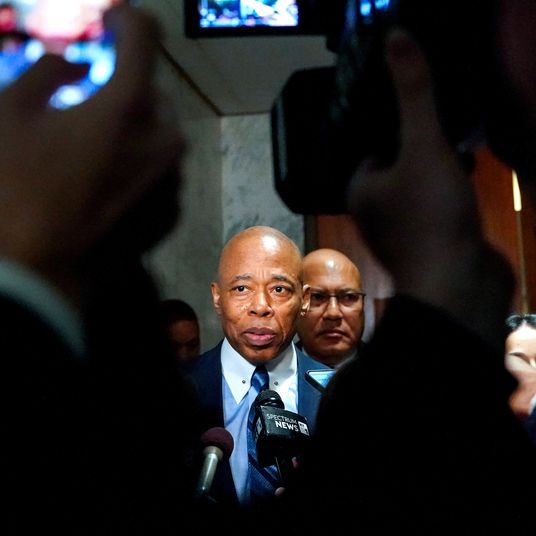After being abandoned by Governor Paterson a year ago, the soda tax is being debated in Albany once again as a way to reduce obesity and raise up to $1 billion for the recession-ravaged state budget. Officials estimate that if the penny-per-ounce tax on non-diet soda (and fruit drinks containing less than 70 percent juice) is implemented, consumption of such beverages will fall by 15 percent. But first it’ll have to get past lawmakers, many of whom are employing their worst slippery-slope arguments in an effort to scare up opposition among a public that largely favors the idea. To wit:
“Ladies and gentlemen, today it’s soda and juice, tomorrow it’s lettuce and tomato,” quipped Sen. Martin Golden (R-Brooklyn). “Do you know how much sugar is in a grape or a banana? They are not going to stop there.”
Assembly Speaker Sheldon Silver (D-Manhattan) said his members are still considering the proposal.
Really, Martin Golden, this is your argument? Do you think anyone is going to believe that the state would ever try to combat obesity by taxing fruit and vegetables? And Sheldon Silver: Thank you for daring to envision a bleak future in which legal things are taxed. Except that the future is now, because all of our taxes are on things that are legal. Cigarettes, alcohol, and anything the sales tax applies to are all “clearly legal.” If you find taxes on legal things unacceptable, you pretty much have to return to a state of nature.
As for Silver’s second point about dealing with “the whole gamut of sugar,” well, we’re sure many health advocates wouldn’t disagree. After all, why should soda take the fall when so many other unhealthy products — such as Kudos, which comprised 40 percent of our diet in middle school — get off scot-free? Well, it turns out that, to start at least, soda in particular makes a lot of sense. According to Times:
Soda consumption has changed — a lot. The typical person now consumes 190 calories a day from sugary drinks, up from 70 a day in the late 1970s. That 120-calorie increase represents about one-half of the total daily caloric increase during that span, C.D.C. data shows.
Of all foods and beverages, says Mr. Brownell, the [Yale] obesity researcher, “the science is most robust and most convincing on the link between soft drinks and negative health outcomes.”
Conversely, a tax on Kudos, for example, would fail to change eating habits, because Kudos are just too delicious.
Gov. Paterson gulps, pushes for soda levy: Senators say move will fall flat [NYDN]





























